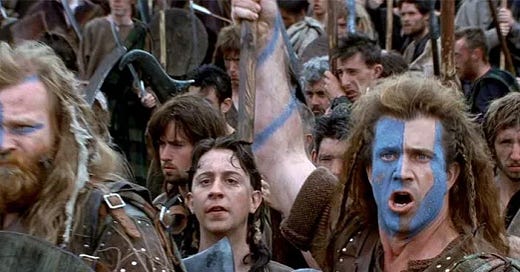The difference between what’s mine and what I claim to be mine may be quite significant. Smartphones, cars, homes: a little investigation reveals at least two factors that shed light to the problematic nature of ownership: finance and control.
As an Eastern European fresh on North American soil, I used to be quite surprised when I’d heard teenagers referring to “their” houses in conversations. I continue to be amused when I hear VC backed startuppers talking about “their” startups, “their” employees, “their” customers, etc. The same applies to employees in management roles.
No matter what the rhetoric, this frame of mind implies that employees are slaves and the company’s OS is fear-based. In this frame of reference, the amount of money somebody’s making is not a factor: Cristiano Ronaldo is a bigger slave (to his own brand, in other words, to himself as a product) than an intern in an advertising agency, since the former’s control over whom his club will sell him to or how “his” brand is built is more limited than that of the intern, who chooses between available options autonomously. If possible, this is even more so in case of actors and other celebrities whose fate is almost completely out of their hands and producers or studio executives can bury them from public sight on a whim.
It’s relatively easy to see that the financial aspect of ownership is relative and the control aspect of it is even more so. This is especially true when it comes to situations involving living creatures. I may own a dog from a financial point of view, but my control over it is obviously limited: irrespective of my hygienic preferences, it will happily eat or wallow in some other dog’s feces; it will disregard my appointment and decide to chase after a bitch in heat instead of answering my call; and no matter how much I paid for it, it may get sick and die. In other words, an animal will mostly obey nature over my ideas.
When it comes to people, they can – irrespective of their circumstances – say no. People have perspective and values and they are free to subordinate the pressing weight of their circumstances to such ideals. (In other words, they may obey ideals even over nature, let alone somebody else’s whims or injustice in general.) Yet, the framework that makes people believe that they have a company, a team or employees presupposes that people are not willing to say no. And if they aren’t, they truly comply with the definition of a slave.
What makes people free is precisely this willingness to subordinate conditions to ideals. Such people may and should form organizations to achieve certain objectives, but they are owned or “managed” by nobody. As you may have guessed, this example depicts the difference between organic and mechanical organizations.
Now the question: how would you picture a functioning organization of free people as opposed to the current ones?
The question is not rhetoric: we do want to hear from you!




